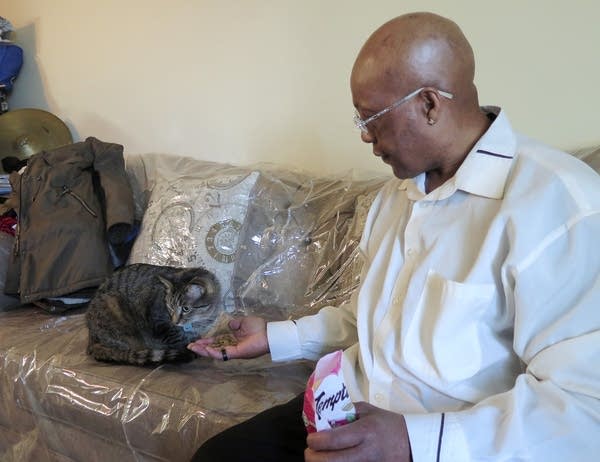More Twin Cities apartments welcome pets — for a price

Andrew Phillips of St. Paul feeds his cat at Edgerton Hi-Rise on Thursday. Phillips said his cat is an emotional companion.
Martin Moylan | MPR News
Go Deeper.
Create an account or log in to save stories.
Like this?
Thanks for liking this story! We have added it to a list of your favorite stories.


